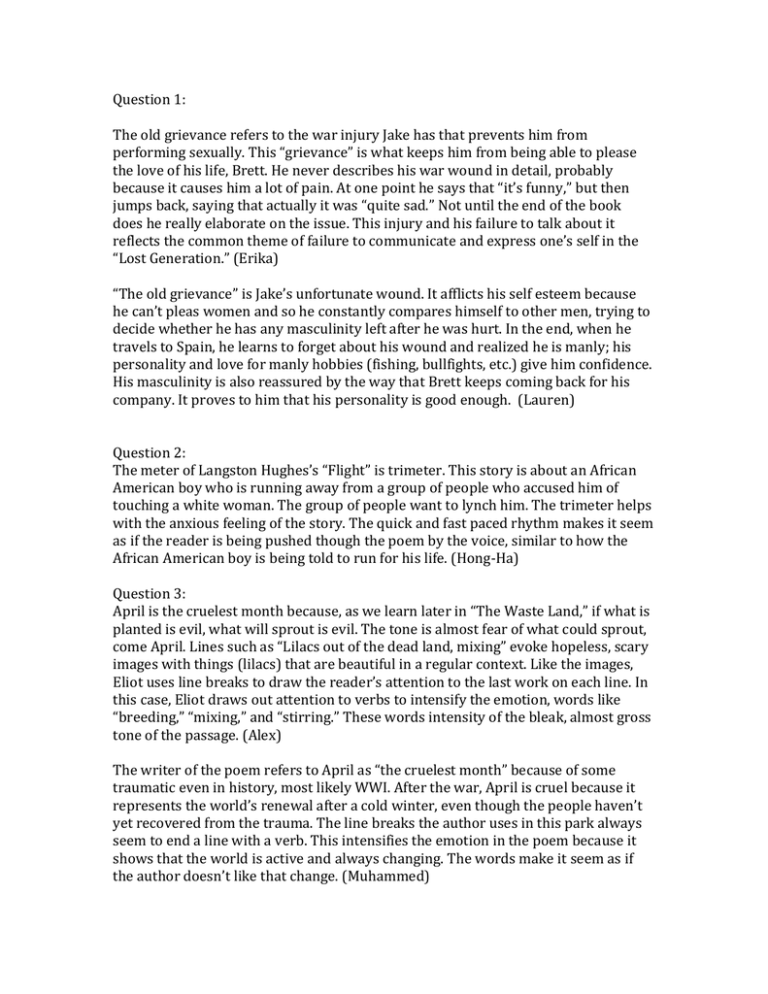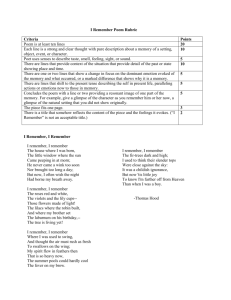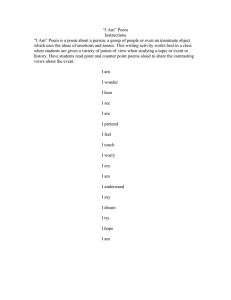Question 1:
advertisement

Question 1: The old grievance refers to the war injury Jake has that prevents him from performing sexually. This “grievance” is what keeps him from being able to please the love of his life, Brett. He never describes his war wound in detail, probably because it causes him a lot of pain. At one point he says that “it’s funny,” but then jumps back, saying that actually it was “quite sad.” Not until the end of the book does he really elaborate on the issue. This injury and his failure to talk about it reflects the common theme of failure to communicate and express one’s self in the “Lost Generation.” (Erika) “The old grievance” is Jake’s unfortunate wound. It afflicts his self esteem because he can’t pleas women and so he constantly compares himself to other men, trying to decide whether he has any masculinity left after he was hurt. In the end, when he travels to Spain, he learns to forget about his wound and realized he is manly; his personality and love for manly hobbies (fishing, bullfights, etc.) give him confidence. His masculinity is also reassured by the way that Brett keeps coming back for his company. It proves to him that his personality is good enough. (Lauren) Question 2: The meter of Langston Hughes’s “Flight” is trimeter. This story is about an African American boy who is running away from a group of people who accused him of touching a white woman. The group of people want to lynch him. The trimeter helps with the anxious feeling of the story. The quick and fast paced rhythm makes it seem as if the reader is being pushed though the poem by the voice, similar to how the African American boy is being told to run for his life. (Hong-Ha) Question 3: April is the cruelest month because, as we learn later in “The Waste Land,” if what is planted is evil, what will sprout is evil. The tone is almost fear of what could sprout, come April. Lines such as “Lilacs out of the dead land, mixing” evoke hopeless, scary images with things (lilacs) that are beautiful in a regular context. Like the images, Eliot uses line breaks to draw the reader’s attention to the last work on each line. In this case, Eliot draws out attention to verbs to intensify the emotion, words like “breeding,” “mixing,” and “stirring.” These words intensity of the bleak, almost gross tone of the passage. (Alex) The writer of the poem refers to April as “the cruelest month” because of some traumatic even in history, most likely WWI. After the war, April is cruel because it represents the world’s renewal after a cold winter, even though the people haven’t yet recovered from the trauma. The line breaks the author uses in this park always seem to end a line with a verb. This intensifies the emotion in the poem because it shows that the world is active and always changing. The words make it seem as if the author doesn’t like that change. (Muhammed) Question 4: The blues is used as an avenue to speak about the pain and deep suffering of racism and economic inequality. Something cannot be talked about or written about and music is used as a medium to “to make us listen.” Blues is the “only light we’ve got in all this darkness.” Even though the music speaks to a man’s sorry, it is the truth and must be heard. The “It” In this passage, as I read it, is Sonny’s brother, and the “we” are all Black people. For Sonny’s brother, to not hear and feel the truth of the music is to lose is brother and to be blind to what is happening with race relations all around him. For the “we,” to not hear and feel the truth is not to fight. If they cannot hear their pain and feel every bit of it, then they cannot be strong enough to rise above and rise against it. (Kristina) Question 5: This is an imagist poem, and it is called that because in this style, the author focuses solely on the object, describing in very few works the image of a scene. The tone is apologetic, by playful. We see this in the fact that Williams describes the fruit as “so sweet/and so cold,” after apologizing for its absences. The line breaks seem to amplify the playfulness of the poem. The fact that lines and stanzas are so succinct lends some lightness to the text. (Jake)




